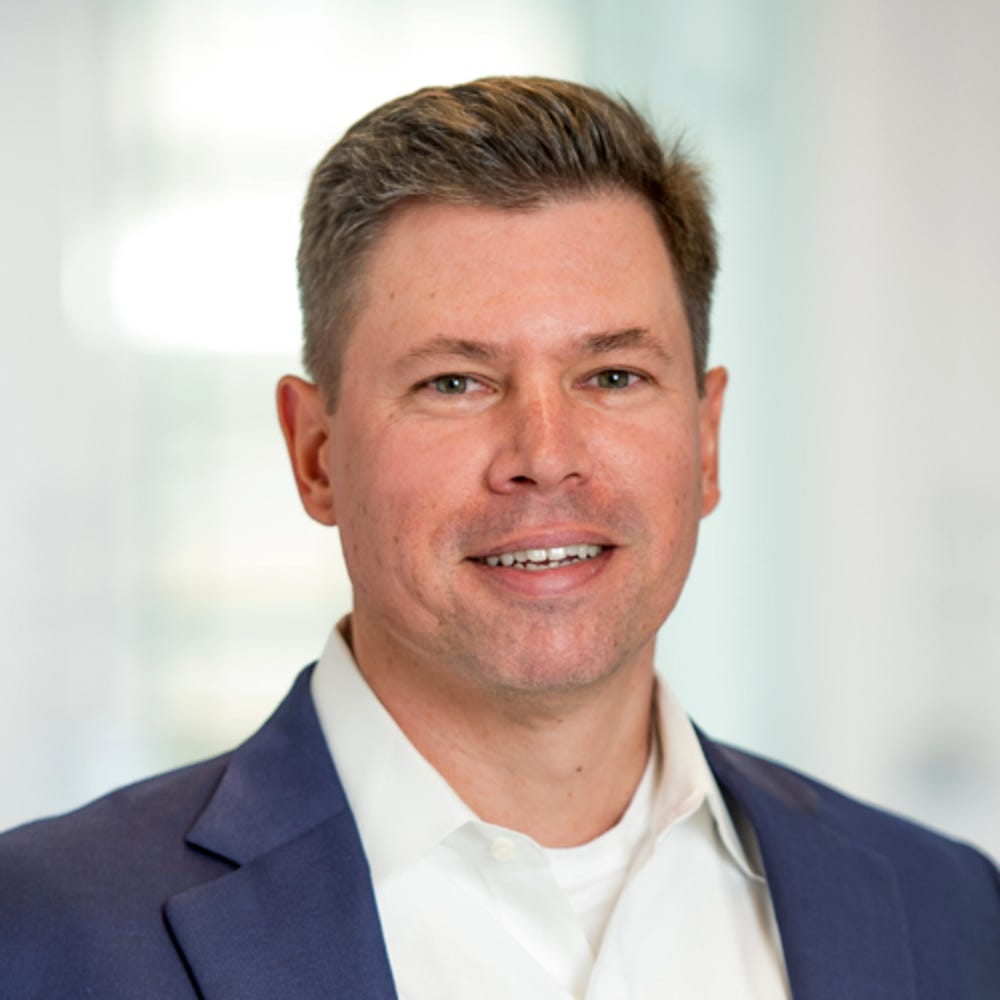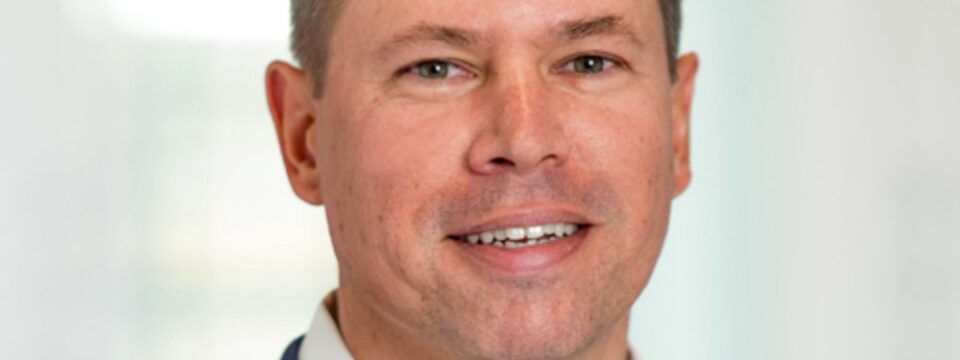Health Tech: Pierre Menard On How Trella’s Technology Can Make An Important Impact On Our Overall Wellness

Young people should consider making a positive impact because it is better than making a negative impact. Young people can be idealistic and aim their sites too high and try to solve the biggest problems and get discouraged when they fail. Instead, build your skills and focus on a narrower aspect of these things where you can have a real chance at making progress.
In recent years, Big Tech has gotten a bad rep. But of course many tech companies are doing important work making monumental positive changes to society, health, and the environment. To highlight these, we started a new interview series about “Technology Making An Important Positive Social Impact”. We are interviewing leaders of tech companies who are creating or have created a tech product that is helping to make a positive change in people’s lives or the environment. As a part of this series, I had the pleasure of interviewing Pierre Menard.
Responsible for Trella Health’s technology strategy, Pierre not only creates the vision and direction for our data and software architecture — he also fosters an environment that stimulates innovation and creativity. In short, Pierre’s the champion for our technology organization.
Pierre brings more than 20 years of experience in software architecture, development, and technical management spanning industry verticals such as healthcare, life sciences, enterprise software, and medical devices.
Prior to joining Trella Health, Pierre was Vice President of Data Platform Engineering at Medecision where he led efforts related to public cloud adoption, data management, and analytics for health payer and provider data.
Prior to Medecision, Pierre led digital transformation for a $10 billion subdivision within United Healthcare focused on the Medicare and supplemental insurance market, delivering its first mobile apps, responsive websites, and electronic communications to members.
Pierre earned a master’s degree in computer science from Columbia University in New York City and graduated with honors from the University of Waterloo in Canada with a bachelor’s degree in electrical engineering. He also completed executive education at the University of Pennsylvania Wharton School.
An avid reader, Pierre also enjoys playing soccer and poker — and has an unfair advantage when it comes to calculating odds.
Can you tell us a bit about your childhood backstory and how you grew up?
I grew up in a lower middle-class family in Canada. At one point my mother was single and raising two boys on government assistance. We didn’t have much compared to other kids at school, but the experience made me fiercely independent, competitive, and hungry to do better for myself. I played a lot of team sports and graduated with the highest grades in my high school. I then enrolled in the most competitive engineering program I could find. In hindsight, I wouldn’t change anything about my childhood. I consider myself extremely fortunate.
Can you share the most interesting story that happened to you since you began your career?
My first job out of college (circa 1999) was for a large PC manufacturer that was trying to destroy Dell’s burgeoning direct-to-consumer business model of selling personal computers online. My employer thought they could put Dell out of business by offering consumers millions of different product configuration options instead of the simpler half-dozen product configurations offered by Dell. What color do you want your power cord? What language do you want your manuals? It was unnecessary complexity, and our algorithms did not scale well online. The product complexity permeated throughout the company. Sales teams selling to large enterprises often sold configurations and components that were no longer supported by Manufacturing. Unnecessary complexity kills.
None of us are able to achieve success without some help along the way. Is there a particular person who you are grateful towards who helped get you to where you are? Can you share a story about that?
I am grateful for all the bosses I have had along the way. Simple words of encouragement like “Attaboy, you did a really good job on that” or “I can see you being a CTO (Chief Technology Officer) someday” have really stayed with me for many years. I once had a boss nicknamed Mr. Teflon, because when things went awry, he could bounce the stress right off. Mr. Teflon was extremely even-keeled and optimistic, especially in high-stress situations, and I try to incorporate that style.
I am also grateful for all the bad bosses I have had along the way since they are wonderful examples of what not to do.
Can you please give us your favorite “Life Lesson Quote”? Can you share how that was relevant to you in your life?
Always look on the bright side and find the unseen benefit. In Greek mythology, Sisyphus was banished by Zeus to roll a rock up a hill for eternity as punishment, but it does not seem like terrible punishment to me. Most people go through life without knowing their purpose, but Sisyphus had it in spades. Think of the great exercise you would get. You can time yourself rolling that rock up the hill and try to achieve a personal best. You would have a lot of time to think about things. If it were me, I would roll that rock with a big smile on my face and thank Zeus. It would be my way of letting Zeus know that I control my own happiness.
You are a successful business leader. Which three-character traits do you think were most instrumental to your success? Can you please share a story or example for each?
Curiosity: Be relentless in your lifelong learning. Go deep into your area of expertise. Go broad and learn about adjacent and unrelated topics. Build mental models for how things work, not only technical matters, but also processes and people too. Ask a lot of questions.
Focus: Know what outcome you are shooting for, and the story you want to tell once you finish a unit of work. Don’t waste time. Speak plainly and get to the point.
Care: Care about your craft to do quality work. Care about your team and co-workers and help them be successful. Care about your customers so your work will be useful to them.
Ok super. Let’s now shift to the main part of our discussion about the tech tools that you are helping to create that can make a positive impact on our wellness. To begin, which particular problems are you aiming to solve?
Trella Health provides data and software products to post-acute care (PAC) providers and suppliers. New business development in post-acute markets has traditionally been based on who you know instead of how well you deliver care. Trella Health provides market-wide transparency and visibility into post-acute care costs and care quality so that post-acute organizations can win new business based on their performance data.
Lack of transparency is a huge problem in healthcare and leads to large variances in cost and quality outcomes. Trella Health’s data provides transparency into post-acute markets and acts as an arbitrage mechanism rewarding those providers who do an excellent job controlling costs and delivering quality care while punishing poor performers.
How do you think your technology can address this?
Trella Health produces a huge panel of risk-adjusted measures on every physician and post-acute provider within the United States. With this approach, a post-acute provider can see how they compare against their competitors while simultaneously identifying physicians and facilities that are good referral sources.
Another problem we are seeking to solve is to make post-acute business development more efficient. The post-acute market has historically been underserved in terms of software solutions. Through process automation, we can super-charge new business development and sales teams.
Can you tell us the backstory about what inspired you to originally feel passionate about this cause?
I am a major fan of Clay Christensen’s work around disruptive innovation. I once heard him deliver a talk about how healthcare would be disrupted. His idea was that acute-care settings (hospitals) are too expensive and there will be pressure to deliver more care at home and other post-acute settings where the same or better care can be delivered at lower cost. New lower cost medical devices that connect to your smart phone will help drive this transition. The types of solutions Trella Health provides support this disruption too.
I am an engineer so that is the kind of answer you might expect from a CTO. A lot of people I work with are very driven by the human side of healthcare and doing what is best for the patient, such as with hospice where it is very meaningful to be able to help those near the end of life.
How do you think this might change the world?
Marc Andreessen famously said software is eating the world. The work Trella Health is engaged in is a good example of that.
Keeping “Black Mirror” and the “Law of Unintended Consequences” in mind, can you see any potential drawbacks about this technology that people should think more deeply about?
Any technology can be misused whether on purpose or inadvertently, but I don’t worry about that too much. Given what we know today, the benefits of our technology outweigh the cons. If any drawbacks were to surface, I feel confident we can find ways to address it.
Based on your experience and success, can you please share “Five things you need to know to successfully create technology that can make a positive social impact”? (Please share a story or an example, for each.)
The Will: believe you can succeed and have the drive
The Skill: accrue new relevant skills quickly
Practical Idea: a solution to a problem that others see value in solving
Execution: most importantly, know how to execute including fast feedback cycles, and pivoting quickly
Promotion: tell people about your solution and get them excited about it
If you could tell other young people one thing about why they should consider making a positive impact on our environment or society, like you, what would you tell them?
Young people should consider making a positive impact because it is better than making a negative impact. Young people can be idealistic and aim their sites too high and try to solve the biggest problems and get discouraged when they fail. Instead, build your skills and focus on a narrower aspect of these things where you can have a real chance at making progress.
Is there a person in the world, or in the US with whom you would like to have a private breakfast or lunch, and why? He or she might just see this, especially if we tag them. 🙂
I would love to pick John Doerr’s brain about climate change. I loved his book “Measure What Matters” about OKRs and his follow-on book “Speed & Scale” that applies OKRs to climate change.
I would also love to talk to the CTO of the United States since there is a lot more that the US could be doing to establish digital utilities for the common good. Unfortunately, the position is currently vacant.
How can our readers further follow your work online?
Thank you so much for joining us. This was very inspirational, and we wish you continued success in your important work.
Health Tech: Pierre Menard On How Trella’s Technology Can Make An Important Impact On Our Overall… was originally published in Authority Magazine on Medium, where people are continuing the conversation by highlighting and responding to this story.
